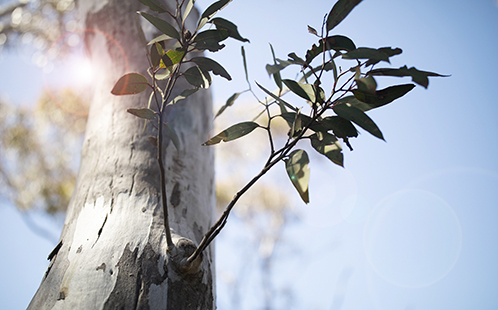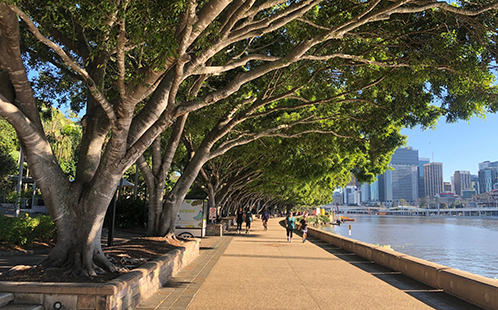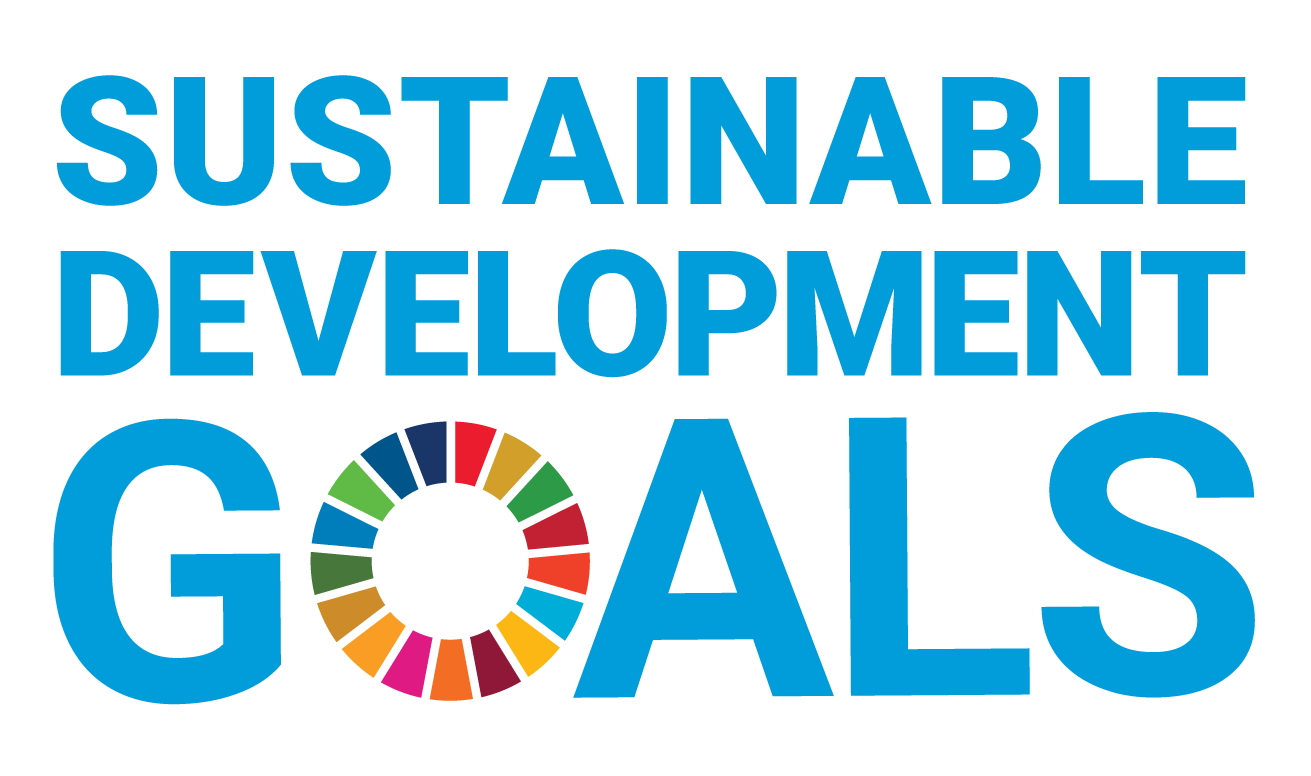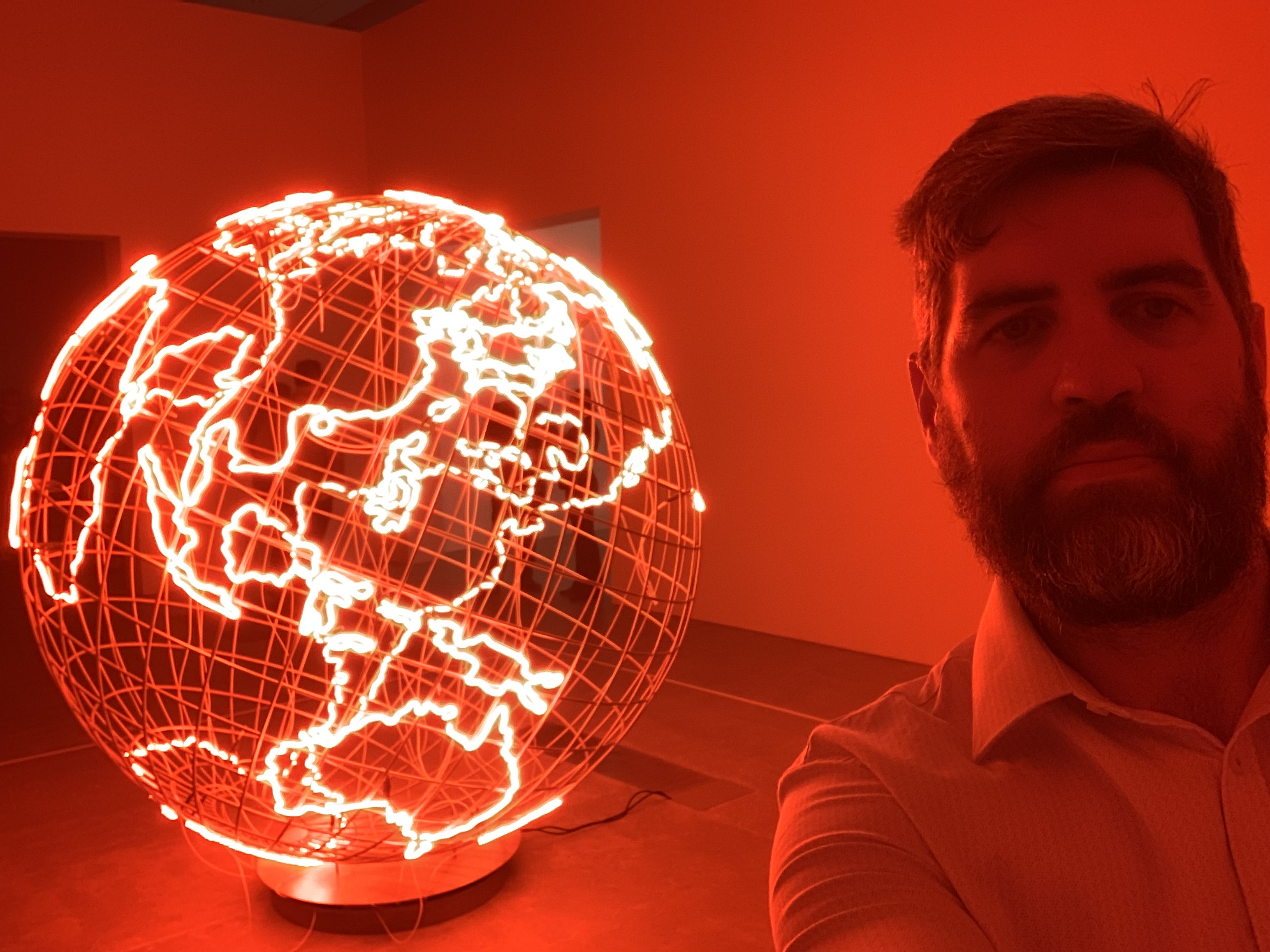You can search for courses, events, people, and anything else.
Climate change has already put more than half of the world’s urban tree species at risk of stunted growth or death. Work led by two Western Sydney University scientists now shows that anticipated future change will put up to 70% of our urban trees under stress by 2050.
“It’s not just the warming, but the creation of urban heat islands and more extreme heat waves,” says biologist, Dr Manuel Esperon-Rodriguez, who has worked with Associate Professor Paul Rymer and a team of international researchers to reveal the findings.
According to Professor Mark Tjoelker, associate director of Western’s Hawkesbury Institute for the Environment, the most beneficial outcome of the work, with broad practical applications, is the comprehensive analysis of the climate risk for urban trees worldwide.
“It’s an amazing database of tree species that are commonly planted here in Australia and elsewhere, and it provides a framework for assessing climatic risk in the current urban forestry portfolio,” Tjoelker says. “If you’re an urban planner, or someone who’s interested in trees in your backyard, having that new tool for risk assessment unlocks a lot of potential for planning.”
Beyond their beauty, urban trees provide a wide range of benefits for people and nature. “Urban forests are extremely important to support local biodiversity and ecosystem services, including nutrient cycling, carbon capture, water purification, and pollution capture,” says Rymer. “They also provide people with essential public green spaces important for physical and mental health. As cities grow it is critical to support and build robust and diverse urban forests.”
Rymer’s team is expanding research to investigate the adaptive capacity of native plants in urban forests across Australia. Esperon-Rodriguez is exploring the social aspect of how people interact with green spaces and how urban trees affect human health.
To increase the odds of survival for urban forests, homeowners and urban planners need to think carefully about what they plant today. “It’s not just about the number of trees planted, we need to plant species that will survive in a changing climate,” Esperon-Rodriguez says. “2050 is just around the corner, we’re running out of time.”
Meet the Academic | Associate Professor Paul Rymer
Dr Paul Rymer is a plant evolutionary ecologist and Associate Professor in Plant Ecological Genetics at the Hawkesbury Institute for the Environment. Growing up in the Blue Mountains, he was inspired by nature and the capacity for plants to not only cope with major disasters (e.g. wildfires and drought) but thrive in their wake with an amazing diversity of forms and functions. Paul completed his BSc (Honours) at the University of Western Sydney (1999) and PhD (Biological Science) at the University of Wollongong (2006). He worked in the UK as a Postdoctoral Researcher at the University of Oxford (2006-2007) and Marie Curie Incoming International Fellowship at the Royal Botanic Gardens Kew and Imperial College London (2007-2009), before returning to Australia to work at the Royal Botanic Gardens Sydney (2009-2010). In 2011, he commenced work at the Hawkesbury Institute for the Environment as a Research Lecturer. Paul’s research employs an interdisciplinary approach from ecology, physiology, and genetics to investigate the factors driving/eroding biodiversity and biological adaptations. He leads an active research group that collaborates broadly, applying state-of-the-art technologies to address fundamental questions in biology, along with real world issues.
Meet the Academic | Dr Manuel Esperon-Rodriguez
Manuel Esperon-Rodriguez is a Research Theme Fellow for Environment & Sustainability and an ecologist who studies the effects of climate on plant function. Manuel has expertise in spatial analysis and modelling, particularly the novel use of “big data” approaches to address questions related climate change impacts on urban ecosystems. His research incorporates climate adaptation into management and conservation of urban environments and combines modelling approaches with new empirical data to identify resilient and vulnerable species in the context of future climates, across global cities. Manuel’s research also focuses on the health and wellbeing, physical and social determinants that make up sustainable urban environments, which aligns with the United Nations Sustainable Development Goals, specifically for sustainable cities.
Credit
Future-Makers is published for Western Sydney University by Nature Research Custom Media, part of Springer Nature.







